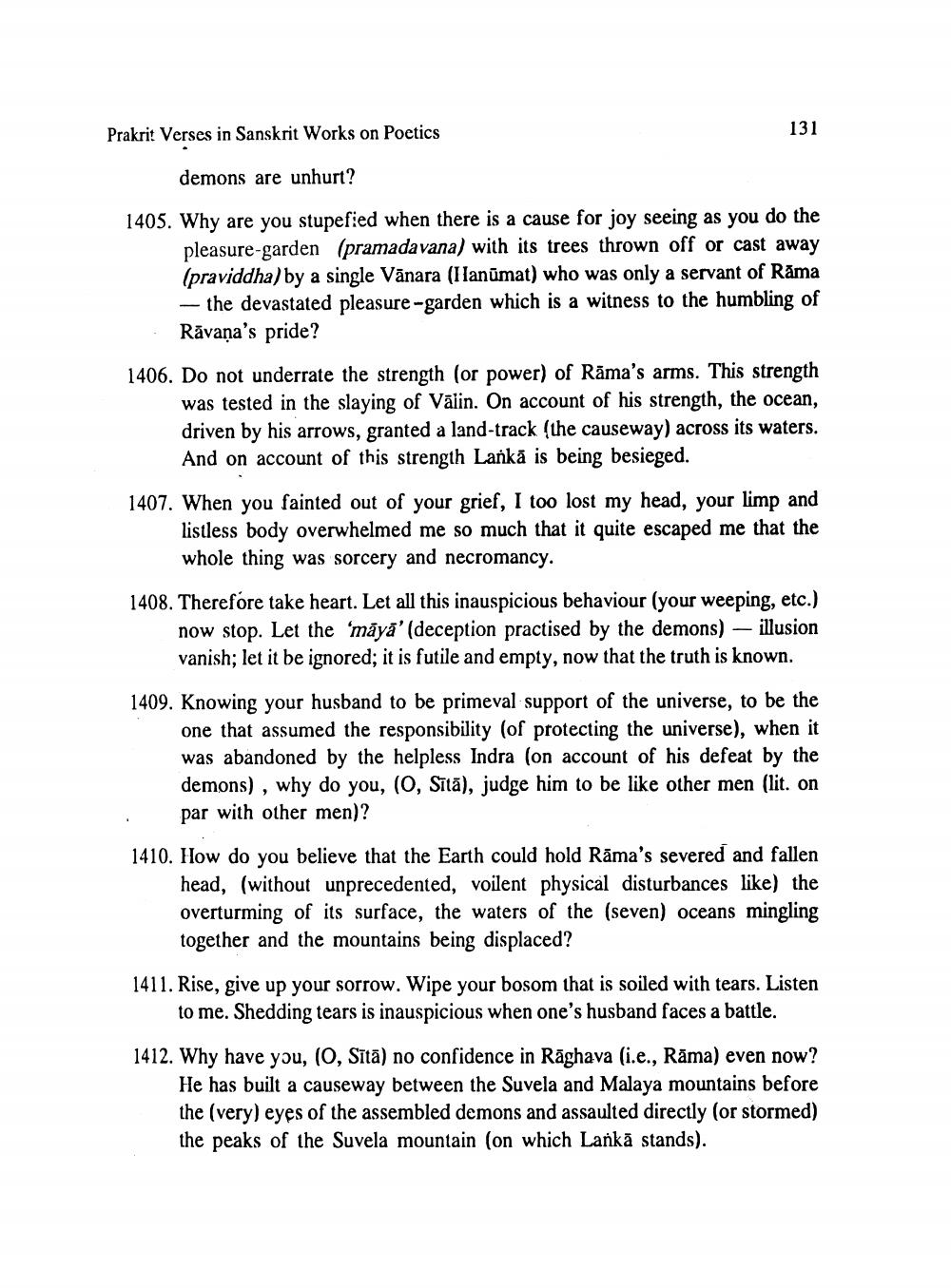________________
Prakrit Verses in Sanskrit Works on Poetics
131
demons are unhurt?
1405. Why are you stupefied when there is a cause for joy seeing as you do the
pleasure-garden (pramadavana) with its trees thrown off or cast away (praviddha) by a single Vānara (I lanūmat) who was only a servant of Rāma - the devastated pleasure-garden which is a witness to the humbling of Rāvana's pride?
1406. Do not underrate the strength (or power) of Rāma's arms. This strength
was tested in the slaying of Vālin. On account of his strength, the ocean, driven by his arrows, granted a land-track (the causeway) across its waters. And on account of this strength Lankā is being besieged.
1407. When you fainted out of your grief, I too lost my head, your limp and
listless body overwhelmed me so much that it quite escaped me that the whole thing was sorcery and necromancy.
1408. Therefore take heart. Let all this inauspicious behaviour (your weeping, etc.)
now stop. Let the 'maya' (deception practised by the demons) - illusion vanish; let it be ignored; it is futile and empty, now that the truth is known.
1409. Knowing your husband to be primeval support of the universe, to be the
one that assumed the responsibility (of protecting the universe), when it was abandoned by the helpless Indra (on account of his defeat by the demons), why do you, (0, Sītā), judge him to be like other men (lit. on par with other men)?
1410. How do you believe that the Earth could hold Rāma's severed and fallen
head, (without unprecedented, voilent physical disturbances like) the overturming of its surface, the waters of the (seven) oceans mingling together and the mountains being displaced?
1411. Rise, give up your sorrow. Wipe your bosom that is soiled with tears. Listen
to me. Shedding tears is inauspicious when one's husband faces a battle.
1412. Why have you, (0, Sītā) no confidence in Rāghava (i.e., Rāma) even now?
He has built a causeway between the Suvela and Malaya mountains before the (very) eyes of the assembled demons and assaulted directly (or stormed) the peaks of the Suvela mountain (on which Lankā stands).




